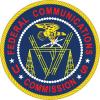Coronavirus and Connectivity

More Providers Take Chairman Pai's Keep Americans Connected Pledge
Federal Communications Commission Chairman Ajit Pai announced that 116 more broadband and telephone service providers have taken his Keep Americans Connected Pledge. Chairman Pai launched the Keep Americans Connected Pledge on March 13 with 69 broadband and telephone providers across the country agreeing to take specific steps to help Americans stay connected for the next 60 days. March 16’s announcement means that 185 companies in total have now taken the Pledge.
T-Mobile herds 600 MHz spectrum from other providers for COVID-19 response
T-Mobile worked with a variety of other providers to rustle up additional 600 MHz spectrum to help it meet increased customer demand for wireless broadband, as people are forced to work and learn from home. The companies that have agreed to contribute spectrum are Dish, Comcast, NewLevel, LB License Co, Channel 51, Omega, Bluewater and TStar License Holdings.
Internet connections could stumble for some if too many family members try to videoconference at the same time
The US internet won’t get overloaded by spikes in traffic from the millions of Americans now working from home to discourage the spread of the new coronavirus, experts say. But connections could stumble for many if too many family members try to videoconference at the same time. The core of the US network is more than capable of handling the virus-related surge in demand because it has evolved to be able to easily handle bandwidth-greedy Netflix, YouTube and other streaming services.
As schools close due to the coronavirus, some U.S. students face a digital ‘homework gap’
As K-12 officials in many states close schools and shift classes and assignments online due to the spread of the new coronavirus, they confront the reality that some students do not have reliable access to the internet at home – particularly those who are from lower-income households. Here are key findings about the internet, homework and how the digital divide impacts American youth:
So We’re Working From Home. Can the Internet Handle It?
As millions of people across the US shift to working and learning from home this week to limit the spread of the coronavirus, they will test internet networks with one of the biggest mass behavior changes that the nation has experienced. That is set to strain the internet’s underlying infrastructure, with the burden likely to be particularly felt in two areas: the home networks that people have set up in their residences, and the home internet services from Comcast, Charter and Verizon that those home networks rely on.
Senator Markey Leads Colleagues In Letter to Chairman Pai Calling on FCC to Ensure All Students Can Remotely Continue Education During Coronavirus Emergency
Sens Ed Markey (D-MA), Michael Bennet (D-CO), and Brian Schatz (D-HI) led thirteen of their colleagues in calling on the Federal Communications Commission to temporarily allow schools to utilize E-Rate program funding to provide Wi-Fi hotspots or devices with Wi-Fi capability to students who lack internet access at home. This action would help ensure that all students can remotely continue their education during the current public health emergency.
‘It shouldn’t take a pandemic’: Coronavirus exposes Internet inequality among US students as schools close their doors
In states like Illinois, Maryland, Michigan, Pennsylvania and Washington, educators say they are feeling firsthand the sting of the digital divide — the historically hard-to-erase gap between those who have speedy, modern-day Web connections and those who do not.

FCC Grants T-Mobile Temporary Spectrum Access During Coronavirus
The Federal Communications Commission granted Special Temporary Authority to T-Mobile U.S.A. to use additional spectrum in the 600 MHz Band to help it meet increased customer demand for broadband during the coronavirus pandemic.
Why It’s So Important for Broadband Companies to Ditch Data Caps Right Now
As the coronavirus forces people indoors, internet usage is sure to increase for entertainment, work, and accessing information and services. For low-income households that already struggle to obtain adequate broadband access, being even more reliant on the internet may exacerbate the pre-existing challenges of living in a virtually connected society. “This situation is highlighting the digital divide and all the inadequacies of the current structures in place to provide universal broadband service,” says Olivia Wein, staff attorney at the National Consumer Law Center.

FCC Commissioner Rosenworcel On Broadband Companies' Pledge To Keep Americans
The coronavirus demands swift and decisive action. We know that more Americans than ever before will need internet access for work, education, and healthcare. We also know that this crisis will expose hard truths about the scope for the digital divide. That is why today’s pledge by a number of broadband providers is a welcome first step. But we will need to do more to keep the country connected. Here are three things that the FCC can do next: First, we need to get to work to connect schoolchildren.

